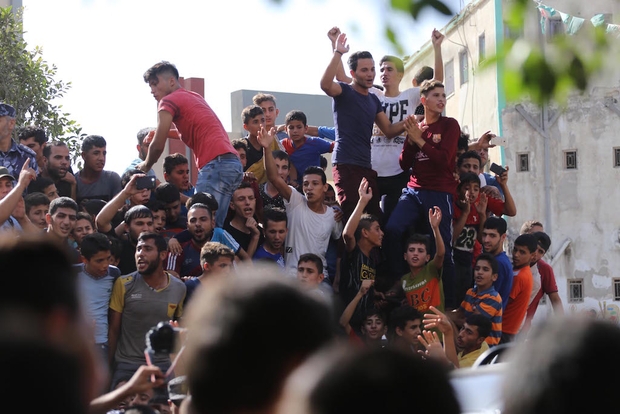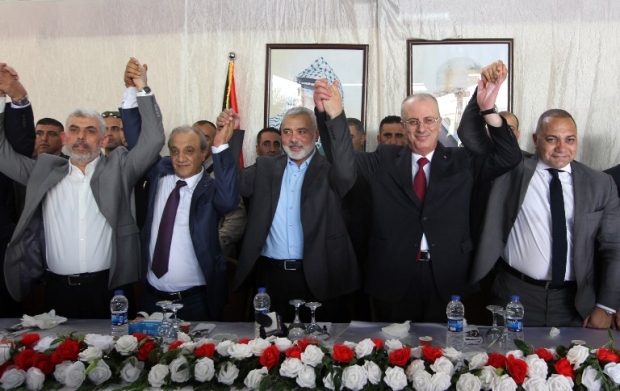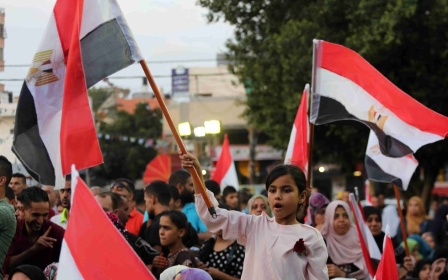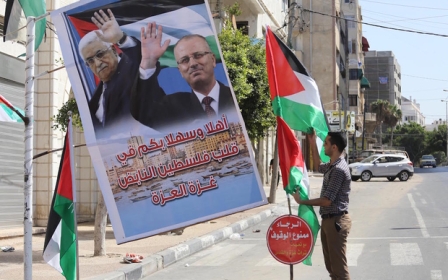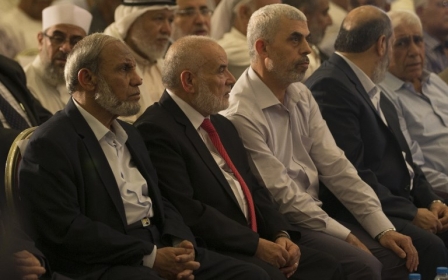Palestinian cabinet convenes in Gaza in move to reconcile with Hamas
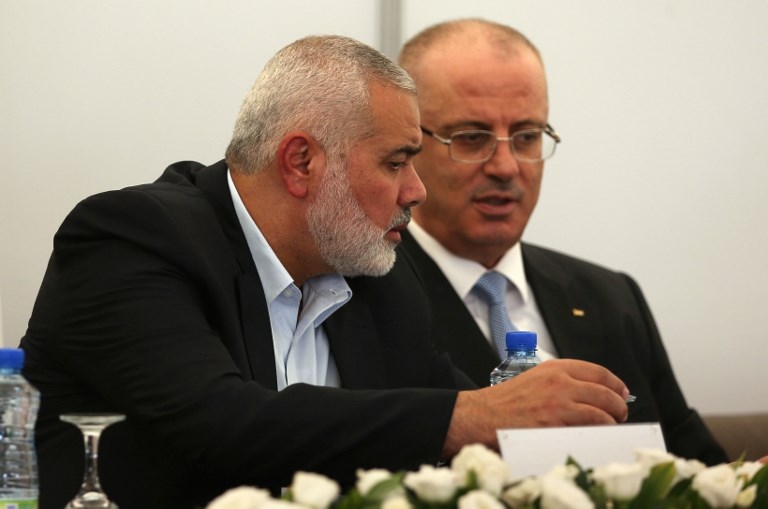
Prime Minister Rami al-Hamdallah on Tuesday chaired the first meeting of the Palestinian cabinet in Gaza for three years in a move towards reconciliation between the mainstream Fatah party and Islamist group Hamas.
Hamas seized the Gaza Strip in 2007 in fighting with Fatah forces loyal to President Mahmoud Abbas and has ruled the impoverished desert enclave of two million people since then.
The cabinet session was the first in Gaza since 2014, Hamdallah told his ministers, and a major step in a reconciliation process promoted by neighbouring Egypt and other US-allied Arab countries.
"Today, we stand before an important, historical moment as we begin to get over our wounds, put our differences aside and place the higher national interest above all else," he said.
'We are not prepared to accept bogus reconciliations in which the Palestinian side apparently reconciles at the expense of our existence'
- Israeli Prime Minister Benjamin Netanyahu
Israeli Prime Minister Benjamin Netanyahu said that Israel would reject any reconciliation deal between the two leading Palestinian factions unless the Iran-backed Islamist movement Hamas disarmed.
"We are not prepared to accept bogus reconciliations in which the Palestinian side apparently reconciles at the expense of our existence," Netanyahu said in a statement.
"Whoever wants to make such a reconciliation, our understanding is very clear: recognise the State of Israel, disband the Hamas military arm, sever the connection with Iran - which calls for our destruction," Netanyahu added.
The PA has signed a peace deal with Israel, but Hamas has not.
In video message, Sisi celebrates 'opportunity'
But Cairo, which has been a key backer of attempts at reconciliation, welcomed the development.
In a pre-recorded speech addressing the two main Palestinian movements on Tuesday, Egyptian President Abdel Fattah al-Sisi said that Palestinian reconciliation could be an "opportunity" for wider regional peace, and called for global support for the initiative.
"The whole world is waiting for your efforts to achieve reconciliation among the Palestinian people and appreciates your determination to address all obstacles," he said.
"There is a chance to realise peace in the region, providing all the parties are united."
The video was played as Egyptian intelligence head Khaled Fawzy met with Hamas and Palestinian Authority leaders in the Gaza Strip.
"I am confident the major world powers, when they see the Palestinian parties are fully aware of the nature of this phase and the importance of dialogue to achieve the goal of peace, will help to realise this peace," he added.
Hamdallah crossed into Gaza on Monday and was welcomed by a Hamas honour guard and hundreds of Palestinians.
Sabri Siadam, minister of education and a member of Fatah's central committee, told MEE that the mood was joyous.
"Today a new history is written in Gaza Strip, today was an achievement for all the Palestinians, happiness filled the streets, people are satisfied and optimistic," he said.
Today, we stand before an important, historical moment as we begin to get over our wounds, put our differences aside and place the higher national interest above all else
- Rami al-Hamdallah, Palestinian PM
Hamas, considered a terrorist group by Israel and the West, last month disbanded its Gaza shadow government after Egypt, Saudi Arabia and the United Arab Emirates imposed an economic boycott on its main donor, Qatar.
But while Hamas has handed over administrative responsibilities to a unity government originally formed three years ago, its armed wing remains the dominant force in Gaza.
"We understand that returning official institutions to their legitimate and legal framework and ending all the impacts of division will require exhausting efforts and a lot of patience, of time and of wisdom," he said.
'One state, one regime, one law and one weapon'
Abbas told Egyptian TV station CBC on Monday there could be only "one state, one regime, one law and one weapon" in the Gaza Strip, reiterating a long-held position that security should only be in the hands of the Palestinian Authority (PA).
Abbas is based in the Israeli-occupied West Bank and heads the PA government that administers limited self-rule in the territory.
A PA spokesman said Abbas would not lift sanctions on Gaza at this stage but rather await the outcome of talks planned between Fatah and Hamas in the next two weeks.
Pressuring Hamas to loosen its grip on Gaza, he halted payments for Israeli-supplied electricity to the enclave in June, a step that has led to lengthy, daily blackouts. He also withheld salaries for Gaza civil servants.
Everything must be in the hands of the Palestinian Authority, it must be the one to control the crossing points
– Palestinian President Mahmoud Abbas
"Everything must be in the hands of the Palestinian Authority, it must be the one to control the crossing points [in and out of Gaza]," he said. Both Israel and Egypt maintain a partial blockade of Gaza, citing security concerns.
Under previous understandings, some 3,000 Fatah security men would be integrated gradually into a Gaza police force overseen by an interior ministry headed by Hamdallah. Hamas's armed wing, analysts say, has at least 25,000 well-equipped fighters.
Hamdallah tweeted pictures from what he termed the "national reconciliation government" meeting in Gaza
The United States, which is trying to revive Israeli-Palestinian peace talks that collapsed in 2014, is watching developments closely with the aim of improving humanitarian conditions in Gaza, Jason Greenblatt, US President Donald Trump's Middle East envoy, said on Twitter.
But Greenblatt said: "The United States stresses that any Palestinian government must unambiguously and explicitly commit to non-violence, recognition of the State of Israel, acceptance of previous agreements and obligations between the parties, and peaceful negotiations."
Hamas has long rejected those conditions.
New MEE newsletter: Jerusalem Dispatch
Sign up to get the latest insights and analysis on Israel-Palestine, alongside Turkey Unpacked and other MEE newsletters
Middle East Eye delivers independent and unrivalled coverage and analysis of the Middle East, North Africa and beyond. To learn more about republishing this content and the associated fees, please fill out this form. More about MEE can be found here.


